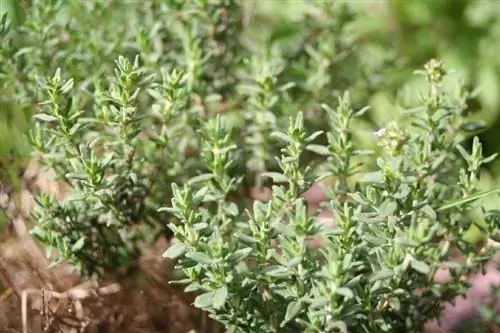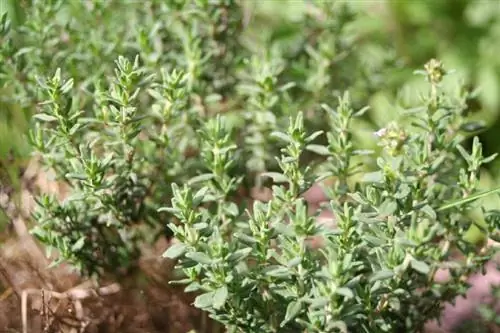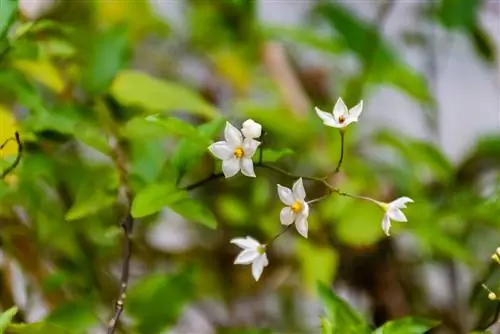- Author admin leonars@hobbygardeners.com.
- Public 2023-12-16 16:46.
- Last modified 2025-01-23 11:20.
Thyme originally comes from the hot and mild summer countries around the Mediterranean. Nevertheless, there are now numerous varieties that thrive in our Central European climate and even survive cold winters. For this reason, the evergreen thyme is wonderful as a ground cover all year round.

How can you properly care for and protect thyme in winter?
In order to overwinter thyme successfully, you should no longer fertilize or cut back the hardy herb from mid-August onwards. During longer periods of frost, protect it with pine branches, spruce branches or straw and avoid waterlogging. In spring the thyme can be pruned and divided.
Many varieties of thyme are hardy
Most thyme varieties are hardy and can therefore be left outdoors during the cold season. The herb survives mild winters without any problems; you should only provide suitable protection during longer periods of frost. An insulating layer made of fir branches or spruce branches and straw is suitable for this. Plastic films, on the other hand, are less suitable because a lot of moisture collects underneath. For the same reason, thyme should not be covered with leaves - too much moisture will cause the delicate plant to rot.
Don’t cut back thyme too late
To ensure that your thyme survives the winter well in the garden, you should plant it from approx. Do not fertilize or cut back in mid-August. Cutting too late would only encourage the herb to form fresh shoots, which would no longer ripen in time before the autumn cold snap and would therefore freeze. Instead, simply let your thyme mature and finally plant it in the spring. Every two to three years, the rapidly aging plant can also be rejuvenated by division - this means you can use your thyme, which usually doesn't live longer than three to four years, for much longer.
Tips & Tricks
In the cold season, make sure you have enough water, because potted thyme in particular should be watered from time to time - but not too much. However, in wet winters, waterlogging can quickly become a problem, so you should protect your plants if necessary - e.g. B. through a roof.






